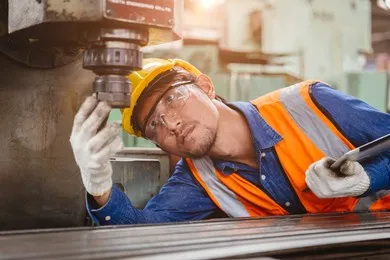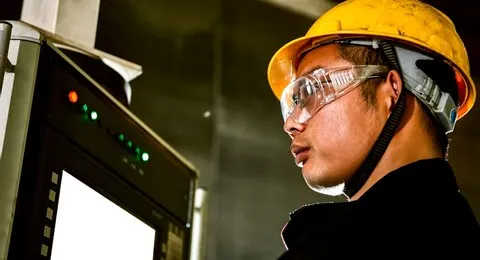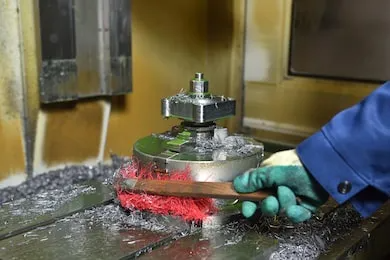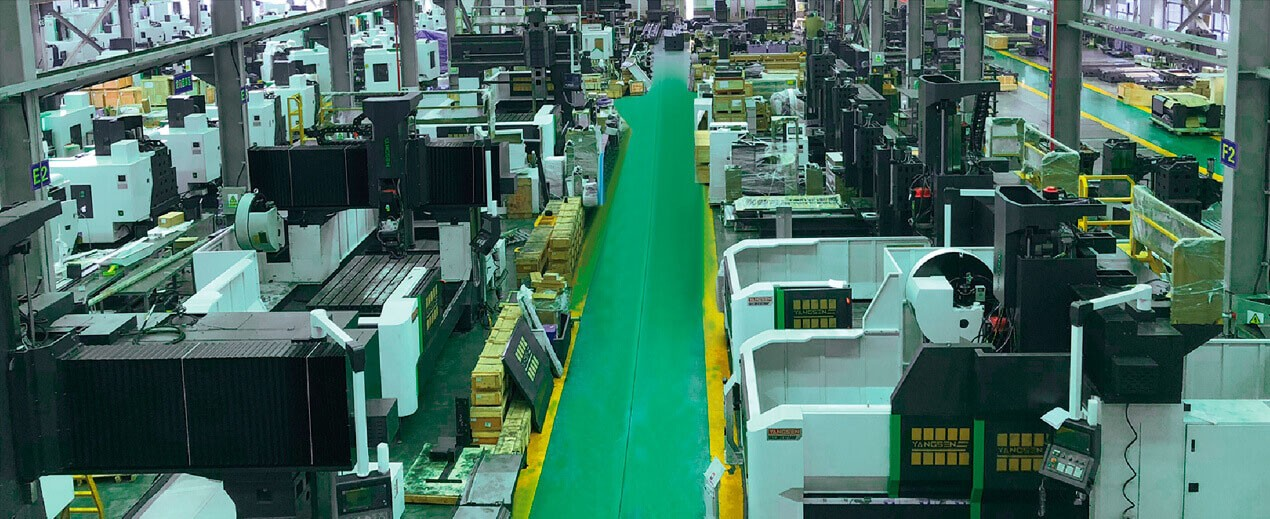The CNC machine has various forms combining mechanical technology to produce durable components used in several sectors. When you use CNC machines it is important that if they are used as part of computer software they have an experienced operator who can operate the machine and understand different procedures for each machine. Many of these safety recommendations are made by the Occupational Safety and Health Administration (OSHA).

Operating CNC machine tools come with an array of functions and pressure that can be hazardous if not done correctly and safely. To ensure the safety of operators and other personnel, it is important to understand the safety precautions and regulations that should be taken when operating CNC machine tools.
When operating CNC machine tools, it is important to take safety precautions and follow regulations to ensure a safe working environment. This includes keeping away from the cutting area while the CNC machine is running, as well as wearing appropriate personal protective equipment (PPE) such as eye protection, gloves, and appropriate clothing. Additionally, operators should be familiar with the specific program being utilized for the operation of their CNC machines and any associated cutting tools that are used during production. All operators should also be aware of any potential risks or hazards posed by their work environment which could lead to injury or death in certain cases.
Finally, it is important to maintain regular maintenance checks on all components of the CNC machine tool and replace worn parts as necessary in order to ensure the safe operation of the tool. By taking all necessary safety precautions and regulations associated with operating CNC machine tools, operators can help to avoid any potential risks or injuries that could occur while working with these powerful machines. Ideally, whenever a CNC machine is operated it should be done in accordance with safety protocols put forth by the manufacturer. It is also important for operators to keep up-to-date on any changes in technology and safety regulations related to their specific type of machine.

Safety precautions and regulations for operating CNC machine tools are extremely important. It is crucial for the operator to be aware of different parts that could potentially be dangerous, such as the spindle, cutting tool, and coolant system. Additionally, it is important to ensure all safety guards are in place before beginning any operation.
To ensure the safe operation of CNC machine tools, it is essential to follow the manufacturer's instructions for proper installation. This includes ensuring that the machine is correctly mounted and leveled, that all electrical and mechanical connections are secure and properly grounded, and that all safety guards and interlocks are in place and functioning correctly. Any deviations from the manufacturer's recommendations can result in serious safety hazards, including electrical shocks, fires, or mechanical failures that could cause injury or damage to the machine or surrounding equipment.
Therefore, it is critical to take the necessary precautions to ensure that your CNC machine tool is installed and maintained properly.
Before operating a CNC machine tool, it is crucial to perform a thorough inspection of the machine and the surrounding area to identify any potential hazards. This includes checking for loose or damaged parts, ensuring that all safety guards and interlocks are in place and functioning correctly, and inspecting the tooling and fixtures for damage or wear. It is also essential to check that the machine's coolant, lubrication, and hydraulic systems are filled and functioning correctly. Any anomalies or issues should be addressed immediately before proceeding with the operation.
Additionally, operators should be aware of potential safety hazards, such as moving machine parts or sharp tools and take the necessary precautions to prevent injury or damage to the machine or surrounding equipment.
Operators may also need to wear protective clothing, such as steel-toe boots or gloves, depending on the operation being performed. It is important for operators to pay attention to the process and functions of the CNC machine tool, as well as any warning signs or indications of potential hazards.
Exceeding the weight limit can cause serious damage to the machine or lead to injury to operators and surrounding personnel. When loading materials onto the machine, it is essential to ensure that the weight is evenly distributed to prevent imbalances or tipping. Serious injury could occur if the tool is tipped or if the cutting too is accidentally contacted. It is also crucial to check the weight limits for any tools or fixtures that are being used and to avoid using tools that are too heavy for the machine. Additionally, it is important to ensure that the machine is in good working condition and that the hydraulic or pneumatic systems are capable of supporting the weight of the material being machined.
Operators should regularly clean the machine, removing any excess chips, coolant, or other debris that may have accumulated during the machining process. It is also essential to ensure that any coolant or lubrication systems are functioning correctly and to clean up any spills or leaks immediately. By keeping your CNC machine tool area clean and organized, you can help to ensure safe and accurate operation.
Untrained or uncertified operators can cause serious damage to the machine, leading to costly repairs or even injury to themselves and others. Therefore, it is essential to establish clear protocols and procedures for operating CNC machine tools and to ensure that all personnel is adequately trained and certified before they operate these machines. Additionally, it is important to provide ongoing training and support to personnel to help them stay up-to-date with the latest technology and best practices in CNC machine tool operation.
Whether it's a lathe or mill combined with a computer system, it's important that a trained machinist is operating it and paying attention to different do's and don'ts for CNC machines.

It is essential to comply with all applicable laws and regulations related to CNC machine tool operation. Failure to comply with these regulations can result in legal liability, fines, and penalties, as well as damage to the reputation of your business. Therefore, it is important to stay up-to-date with the latest regulations and requirements related to CNC machine tool operation and to ensure that your personnel is adequately trained to comply with these regulations. This may include regulations related to workplace safety, environmental protection, and the disposal of hazardous materials.
By ensuring that you comply with all applicable laws and regulations related to CNC machine tool operation, you can help to ensure the safety of your personnel and the long-term success of your business.
In addition to following these safety precautions and regulations, regular maintenance is also crucial to ensuring safe and efficient operation of your CNC machine tools. Neglecting routine maintenance tasks can lead to decreased accuracy, increased downtime, and costly repairs. By adhering to a regular maintenance schedule and addressing any issues promptly, you can help to extend the lifespan of your CNC machine tools and avoid potential safety hazards.
If you have any questions related to CNC machine operations, consult a certified CNC machinist or speak with your supervisor. It is important to always stay informed and up-to-date with the latest CNC machine safety protocols and regulations. With proper knowledge, CNC machines can be operated safely and efficiently.
In conclusion, operating CNC machine tools safely and efficiently requires careful attention to detail and adherence to established safety protocols and regulations. By following the seven safety precautions and regulations outlined in this article, you can help to minimize the risk of injury or damage to your CNC machine tools and ensure that your personnel is equipped with the knowledge and training they need to operate these machines safely and effectively.
If you're interested in learning more about CNC machine tools, or are in the market for a new machine, please visit our website for more information. We offer a range of services and support to help you keep your CNC machine tools running smoothly and safely. Thank you for reading, and stay safe!
